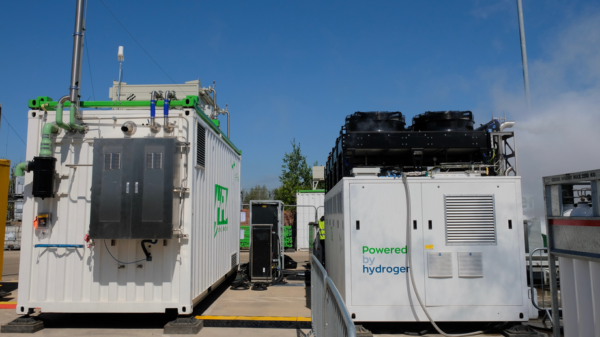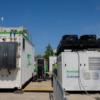Airbus (Euronext Paris: AIR), BMW Group (FWB: BMW) and quantum computing research firm, Quantinuum are using a combination of regular and quantum computers to study and understand chemical reactions that happen in fuel cells, which are essential for clean and sustainable energy.
Reported on Wednesday, the team hopes to unlock new insights and find better catalysts for fuel cells, leading to improved technology and cleaner energy for all of us by using this hybrid approach.
In a recent scientific paper called “Applicability of Quantum Computing to Oxygen Reduction Reaction Simulations,” the three companies made significant progress in understanding a crucial chemical reaction that happens in fuel cells.
This reaction, known as the oxygen reduction reaction (ORR), is essential for converting hydrogen and oxygen into water and electricity, powering the fuel cell. However, the ORR is inefficient and needs a lot of expensive platinum catalysts. A platinum catalyst is a substance that promotes a chemical reaction without itself being consumed or changed in the process.
The researchers focused on accurately modelling the ORR on the surface of platinum-based catalysts to determine how to improve its efficiency. This breakthrough could lead to better, more efficient fuel cells, which would be a big step towards cleaner and more sustainable energy solutions.
Read more: Quantinuum advances quantum computing with release of powerful processor
Read more: Government of Canada invests $40 million into quantum computing tech firm
Team will continue collaboration on other challenges
“Circularity and sustainable mobility are putting us on a quest for new materials, to create more efficient products and shape the future premium user experience,” said Peter Lehnert, vice-president of research technologies at BMW Group.
“Being able to simulate material properties to relevant chemical accuracy with the benefits from the accelerating quantum computing hardware is giving us just the right tools for more speed in innovation for this decisive domain.”
The team has used Quantinuum’s powerful H-Series quantum computer to show how quantum computing can be used to better understand an important chemical reaction.
The research team aims to understand the ORR reaction better, so they can find better materials for fuel cells. These materials can make fuel cells work better and cost less to produce. Modeling chemical reactions like ORR is complicated for regular computers because of the special properties of the chemicals involved.
Read more: Ericsson Canada partners with two Canadian universities to open a Quantum research hub
Read more: Canada and U.K. partner for $32M biomanufacturing program and quantum science research
Quantum computers offer vast potential in several fields
One of the potential applications is in drug discovery, where they can simulate molecular interactions accurately, speeding up the process of finding new medicines and materials.
Another promising area is in optimization and logistics, where quantum computers can efficiently solve complex problems, benefiting industries like supply chain management and financial portfolio optimization.
As research and development progress, these and other applications are likely to reshape various industries and pave the way for new technological advancements.
Other companies making inroads with quantum computing include IBM (NYSE: IBM) and Honeywell (NASDAQ: HON).
.
Follow Joseph Morton on Twitter
joseph@mugglehead.com














